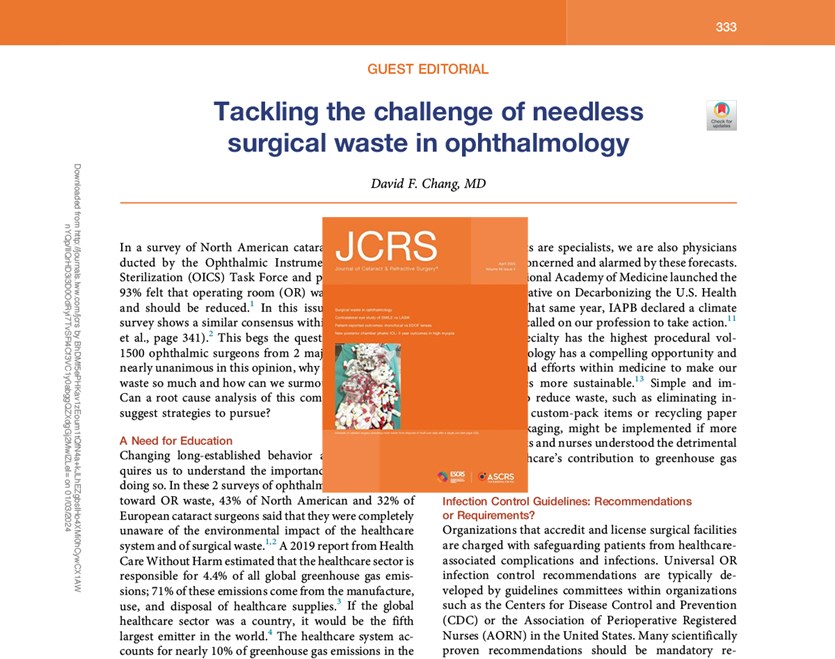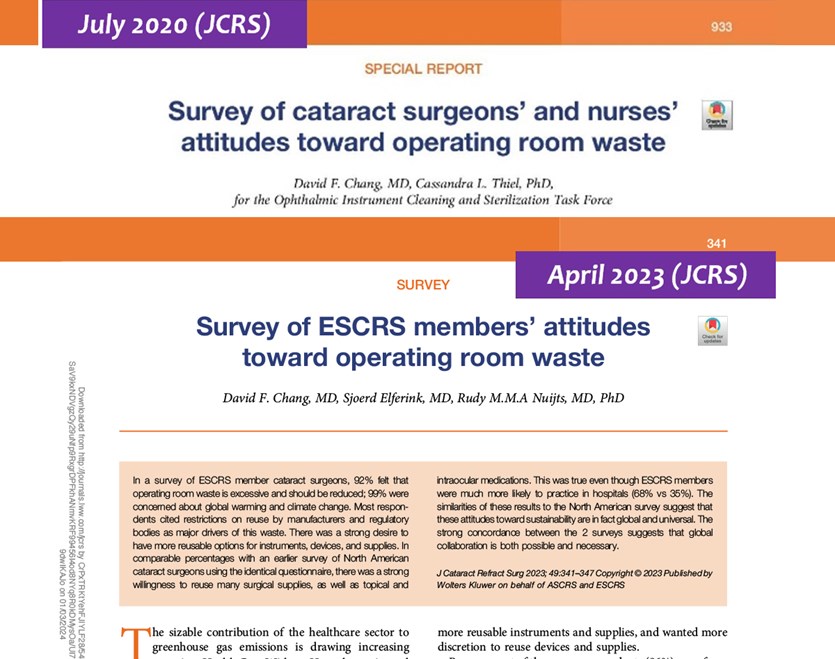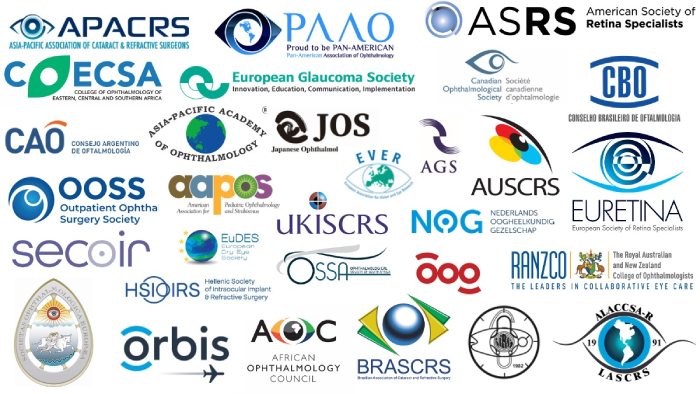

About EyeSustain
EyeSustain is a global coalition of eye societies, organizations, and ophthalmologists collaborating to make ophthalmic care and surgery more sustainable

Our Mission
- Engage, network, and educate our global ophthalmic community about more sustainable practices
- Support research and innovative solutions that reduce ophthalmology’s environmental impact
- Collaborate with industry to reduce our carbon footprint and surgical waste
- Collaborate with other medical specialties to reduce the carbon footprint of our healthcare system
- Support advocacy and education about the public health impact of climate change
Why should we care? What can we do?
In this 15-minute lecture, David F. Chang, MD discusses why surgical waste and sustainability matter and what each of us can do. After highlighting the greatest sources of unnecessary surgical waste, he introduces EyeSustain with a quick tour of the website.

Needless Waste and the Sustainability of Cataract Surgery
A 2019 report from Health Care Without Harm estimated that the healthcare sector is responsible for 4.4% of all global greenhouse gas emissions, and nearly 10% of emissions in the United States; 71% of these emissions come from the manufacture, use, and disposal of healthcare supplies. Studies comparing endophthalmitis rates at the Aravind Eye Hospital system and the AAO IRIS Registry suggest that much of our surgical waste is excessive and unnecessary.
Read or download this 2023 review and root cause analysis "Tackling the challenge of needless surgical waste in ophthalmology"

What do Ophthalmologists think about waste and how to reduce it?
How do ophthalmologists feel about reducing surgical waste? These two surveys – one of European (ESCRS) and one of North American (ASCRS, AAO, OOSS, and COS) cataract surgeons - show strong willingness on the part of more than 1500 respondents to reduce waste through a variety of measures. They believe that many supplies, drugs, and devices could be safely reused rather than discarded after a single use. This message must be considered by manufacturers as well as the hospitals and regulatory agencies that establish OR policies. Read or download these surveys to see what your peers are reusing, or are willing to reuse, and share this with your nursing and surgical staff.
Sponsoring Societies (Click logo for resources)
Global Member Societies


Connect or Get Involved with EyeSustain
Learn more about how you can get involved with our sustainability efforts!


